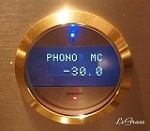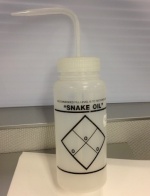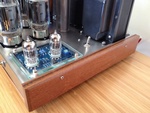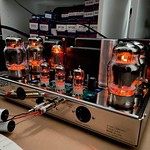I've disconnected both amps and am going back to my solid state amp until I can get this figured out.
+15
Peter W.
jmczaja
nmchiefsfan
Dogstar
cci1492
j beede
corndog71
wildiowa
Bob Latino
peterh
deepee99
vtshopdog
Tubes4ever
mcgyver74
LeGrace
19 posters
Thermal event observed, need help

LeGrace- Posts : 389
Join date : 2016-08-07
Location : Ontario, Canada
- Post n°1
 Thermal event observed, need help
Thermal event observed, need help
So its been about a month with zero issues. Today I'm listening to some music everything is fine and I decide to leave for a minute to check my email since I'm expecting a wire transfer. Come back after about 30 minutes and I instinctively looked at my M125's. Holy crap the GZ37 on one of them is lit up like the giant red star Sirius, I mean the plates everything are glowing bright red (normally just the tips are glowing). I can smell a burning smell. Chassis is burning hot around the power tubes sockets. What the heck just happened? Why didn't the fuse blow? I immediately turned the amp off, not sure what I should do next. Really could use some professional advice, this scared me.
I've disconnected both amps and am going back to my solid state amp until I can get this figured out.
I've disconnected both amps and am going back to my solid state amp until I can get this figured out.

mcgyver74- Posts : 73
Join date : 2017-03-24
Location : Jersey City, NJ
If your rectifier was red plating, the first thing I would check is the quad cap...confirm it's still good and all grounds are good... and that one of the "Caps" in the quad hasn't shorted to ground
Sadly, I would venture to say your GZ37 is history now
Sadly, I would venture to say your GZ37 is history now

LeGrace- Posts : 389
Join date : 2016-08-07
Location : Ontario, Canada
Red plating is an apt description, the entire plate area was cherry red. Sucks if the GZ37 is gone, it had maybe 6 weeks on it. Those NOS tubes are expensive! Anyway how do I confirm the quad cap is still good? My reputation as the sad sack of tubes continues.

LeGrace- Posts : 389
Join date : 2016-08-07
Location : Ontario, Canada
Running on 100% SS now. Totally sucks, had forgotten how bad straight SS sounds.  But I'm afraid to go back to the tubes. The amp was so hot a couple more minutes I'm thinking combustion! Totally stressed right now.
But I'm afraid to go back to the tubes. The amp was so hot a couple more minutes I'm thinking combustion! Totally stressed right now.

Tubes4ever- Posts : 167
Join date : 2015-07-14
Location : Star, Idaho
Don't write off the GZ37 just yet. Do you have a tube tester? If not, once you figure out the source of the short, see if you can properly bias the tubes and measure the B+. If it is close to what it was before the GZ37 is still good.
If you don't know what your B+ was before the failure, see if the bias pots are close to where they were before the failure. They will be an indirect indication of whether the B+ is close to it's previous value. If the B+ is notably lower, you'll have to turn the pots more clockwise than before.
If you don't know what your B+ was before the failure, see if the bias pots are close to where they were before the failure. They will be an indirect indication of whether the B+ is close to it's previous value. If the B+ is notably lower, you'll have to turn the pots more clockwise than before.

vtshopdog- Posts : 155
Join date : 2015-07-11
Location : UT, USA
Legrace - am I correct that you have had multiple tube and rectifier failures? My view from afar is that something is seriously amiss or you are being picked on by the tube gods to a degree that is beyond bad luck. There has to be a root cause for all your issues.
Have failures been in both amps or mostly in one of the pair?
How is your soldering in general?
I'm not the guy who can tell you which parts to check first, but something has to be causing your multiple failures and seems worth looking long and hard at everything before burning up more tubes.
Have failures been in both amps or mostly in one of the pair?
How is your soldering in general?
I'm not the guy who can tell you which parts to check first, but something has to be causing your multiple failures and seems worth looking long and hard at everything before burning up more tubes.

deepee99- Posts : 2244
Join date : 2012-05-23
Location : Wallace, Idaho
LeGrace,
Ontario's a pretty big province. Are we talking near downtown Tarantah or are you on some boondocks power grid powering a giant industrial complex that causes big swings in your house voltage? I'd buy a cheap $20 monitor for that; meanwhile till you get your problem(s) sorted maybe use the Weber copper-caps at $25 a pop instead of ruining a $150 NOS Mullard.
Ontario's a pretty big province. Are we talking near downtown Tarantah or are you on some boondocks power grid powering a giant industrial complex that causes big swings in your house voltage? I'd buy a cheap $20 monitor for that; meanwhile till you get your problem(s) sorted maybe use the Weber copper-caps at $25 a pop instead of ruining a $150 NOS Mullard.

LeGrace- Posts : 389
Join date : 2016-08-07
Location : Ontario, Canada
I really thought my issues were behind me. I run them a lot, every day, and things have been pretty calm since applying the diode mod. Just lost the one power tube since then. I have been keeping an eye on my mains, always reads the same, between 120 and 121. This is something new I believe, as before a rectifier would always pop on powering up, and always took out the fuse. Here the amp had been on for several hours operating perfectly. Nothing was touched. It just went nuclear all of a sudden. I'm wondering about sudden component failure somewhere, resistor maybe? (can a solder connection suddenly let go?)
I have 2 main considerations:
1) How to troubleshoot the current problem? Is there a guide somewhere I can refer to? I'm afraid to even power up the amp right now. What steps should I take in advance. (remove tubes, check xyz etc)
2) If I hadn't come back when I did I could see it catching on fire. It was so smoking hot. You couldn't touch the chassis. Longer term how can I protect against something like this? I mean it occurred randomly out of the blue and the fuse didn't cut out which is really troubling. Go to a lower rated fuse maybe?
Edit: ....yes I am starting to feel like the poster child for bad luck with tubes. The safety aspect though is what worries me the most. What if I had drifted off and fallen asleep? Has been known to happen.
I have 2 main considerations:
1) How to troubleshoot the current problem? Is there a guide somewhere I can refer to? I'm afraid to even power up the amp right now. What steps should I take in advance. (remove tubes, check xyz etc)
2) If I hadn't come back when I did I could see it catching on fire. It was so smoking hot. You couldn't touch the chassis. Longer term how can I protect against something like this? I mean it occurred randomly out of the blue and the fuse didn't cut out which is really troubling. Go to a lower rated fuse maybe?
Edit: ....yes I am starting to feel like the poster child for bad luck with tubes. The safety aspect though is what worries me the most. What if I had drifted off and fallen asleep? Has been known to happen.

peterh- Posts : 1869
Join date : 2012-12-25
Location : gothenburg, sweden
LeGrace wrote:I really thought my issues were behind me. I run them a lot, every day, and things have been pretty calm since applying the diode mod. Just lost the one power tube since then. I have been keeping an eye on my mains, always reads the same, between 120 and 121. This is something new I believe, as before a rectifier would always pop on powering up, and always took out the fuse. Here the amp had been on for several hours operating perfectly. Nothing was touched. It just went nuclear all of a sudden. I'm wondering about sudden component failure somewhere, resistor maybe? (can a solder connection suddenly let go?)
I have 2 main considerations:
1) How to troubleshoot the current problem? Is there a guide somewhere I can refer to? I'm afraid to even power up the amp right now. What steps should I take in advance. (remove tubes, check xyz etc)
2) If I hadn't come back when I did I could see it catching on fire. It was so smoking hot. You couldn't touch the chassis. Longer term how can I protect against something like this? I mean it occurred randomly out of the blue and the fuse didn't cut out which is really troubling. Go to a lower rated fuse maybe?
Edit: ....yes I am starting to feel like the poster child for bad luck with tubes. The safety aspect though is what worries me the most. What if I had drifted off and fallen asleep? Has been known to happen.
< sorry wrong posting >
Last edited by peterh on Fri May 12, 2017 9:09 am; edited 1 time in total

Bob Latino- Admin
- Posts : 3277
Join date : 2008-11-26
Location : Massachusetts
- Post n°10
 Re: Thermal event observed, need help
Re: Thermal event observed, need help
LeGrace,
1. With the amp OFF > Check the RESISTANCE to chassis ground at the two bias measuring points. See if you get about 10 ohms in each case. If one 10 ohm resistor measures as open OR measures some high resistance, just replace that resistor.
2. With the amp OFF > If you have a capacitor tester measure the capacitance to chassis ground at the 4 sections of the quad cap. It may take a few seconds for the reading to stabilize as the quad cap charges up from the battery in your meter. See what the 4 sections read after the reading stops rising? Side note > Anyone who works on tube amps should have a capacitor tester or a multimeter with capacitance testing capability.
3. Bias system check > Take out all the tubes, center the two bias pots, turn the amp ON and measure the DC voltage on pins 5 and 6 of all the output tubes to chassis ground. See if you get about -48 to -60 volts DC at all measuring points. If you do, then the bias system is OK.
Bob
1. With the amp OFF > Check the RESISTANCE to chassis ground at the two bias measuring points. See if you get about 10 ohms in each case. If one 10 ohm resistor measures as open OR measures some high resistance, just replace that resistor.
2. With the amp OFF > If you have a capacitor tester measure the capacitance to chassis ground at the 4 sections of the quad cap. It may take a few seconds for the reading to stabilize as the quad cap charges up from the battery in your meter. See what the 4 sections read after the reading stops rising? Side note > Anyone who works on tube amps should have a capacitor tester or a multimeter with capacitance testing capability.
3. Bias system check > Take out all the tubes, center the two bias pots, turn the amp ON and measure the DC voltage on pins 5 and 6 of all the output tubes to chassis ground. See if you get about -48 to -60 volts DC at all measuring points. If you do, then the bias system is OK.
Bob

wildiowa- Posts : 237
Join date : 2012-03-19
- Post n°11
 Re: Thermal event observed, need help
Re: Thermal event observed, need help
Hopefully, to add some levity to the disappointment of a blown amp...your thread title, "thermal event" to describe your issue, reminds me of the time the wind here on the farm caught one of those aluminum spider gazebo deals you set up in your back yard for a party...and my son in law from NYC reported to me that it had been "compromised." I went out to find it 200 yards away in a ball of aluminum and canvas and thought yeah, it was a bit compromised! I am sorry your amp has been compromised. Good luck with your project...IA.

corndog71- Posts : 840
Join date : 2013-03-19
Location : It can get windy here
- Post n°12
 Re: Thermal event observed, need help
Re: Thermal event observed, need help
You're not alone. I think it's safe to say most of us have had tubes fail. It's probably not your fault. It's not like tubes are made in ultra clean white rooms. Sometimes debris gets in there and eventually gets zapped. It doesn't always kill the tube. Based on advice from Roger Modjeski I fused the cathodes of the power tubes. I've had one tube failure in the last 3 years and rather than destroy the resistor it blew the fuse. Easy fix. He also recommended fusing the B+ although I haven't tried that yet.
In my opinion, tube rectifiers are more trouble than they're worth. I put a pair of UF4007 in series on each leg of the high voltage and aside from a little higher voltage have had no problems. Most modern tube amps use solid state rectifiers.
In my opinion, tube rectifiers are more trouble than they're worth. I put a pair of UF4007 in series on each leg of the high voltage and aside from a little higher voltage have had no problems. Most modern tube amps use solid state rectifiers.

j beede- Posts : 473
Join date : 2011-02-07
Location : California
- Post n°13
 Re: Thermal event observed, need help
Re: Thermal event observed, need help
Order a dozen or so 47µF or 100µF, 450V electrolytic caps from Sal or AES. Bypass the segments of your quad cap with series pairs of these caps. Using a dim bulb to limit current, power up your amp to see if you are back in business. I suggest any tube amp DIY'er should have a supply of these caps for this sort of debug. Your local guitar amp repair guy/shop can source these caps for you. They won't be cheap when purchased this way.
While I agree with Bob regarding having a cap meter, keep in mind that a Harbor Freight cap meter measures your caps at low voltage. Capacitors are field effect devices and the field strengths are much higher at operating voltages.
While I agree with Bob regarding having a cap meter, keep in mind that a Harbor Freight cap meter measures your caps at low voltage. Capacitors are field effect devices and the field strengths are much higher at operating voltages.

LeGrace- Posts : 389
Join date : 2016-08-07
Location : Ontario, Canada
- Post n°14
 Re: Thermal event observed, need help
Re: Thermal event observed, need help
Looks like I'm going to have to order a cap tester on line as not finding any locally.
Fuse rating checks out, 5A. Visual check reveals nothing, ie no burn marks or anything else obvious. Hoping the measurements Bob recommends can shed some light. Will update once I receive the meter. Step 1 checked out, 10 ohms both sides.
Fuse rating checks out, 5A. Visual check reveals nothing, ie no burn marks or anything else obvious. Hoping the measurements Bob recommends can shed some light. Will update once I receive the meter. Step 1 checked out, 10 ohms both sides.

peterh- Posts : 1869
Join date : 2012-12-25
Location : gothenburg, sweden
- Post n°15
 Re: Thermal event observed, need help
Re: Thermal event observed, need help
An excellent device for this is a powersupply :
http://www.radiomuseum.org/r/oltronix_power_supply_d400_007d.html
Here one may apply B+ slow and observe the current and still not have to worry about any
shorts ( as this supply can take this)
http://www.radiomuseum.org/r/oltronix_power_supply_d400_007d.html
Here one may apply B+ slow and observe the current and still not have to worry about any
shorts ( as this supply can take this)

cci1492- Posts : 331
Join date : 2016-05-09
Age : 64
Location : NJ
- Post n°16
 Re: Thermal event observed, need help
Re: Thermal event observed, need help
You have my sympathy, hope you figure this one out soon. For what it's worth, I've been using the Anatek Blue ESR Meter for caps. I got it on eballz as a kit but you can get one already put together and tested for $15 more or so. It already paid for itself as I was able to use to fix a PC monitor that took a sh*t on me a few weeks ago.
https://anatekinstruments.com/products/fully-assembled-anatek-blue-esr-meter-besr
https://anatekinstruments.com/products/fully-assembled-anatek-blue-esr-meter-besr

LeGrace- Posts : 389
Join date : 2016-08-07
Location : Ontario, Canada
- Post n°17
 Re: Thermal event observed, need help
Re: Thermal event observed, need help
Thanks cci.
Really starting to look that way. No matter what I stick in that rectifier socket if its tube based the M125 has it for lunch. Paid big bucks for that GZ37.
j beede wrote:In my opinion, tube rectifiers are more trouble than they're worth. I put a pair of UF4007 in series on each leg of the high voltage and aside from a little higher voltage have had no problems. Most modern tube amps use solid state rectifiers.
Really starting to look that way. No matter what I stick in that rectifier socket if its tube based the M125 has it for lunch. Paid big bucks for that GZ37.

cci1492- Posts : 331
Join date : 2016-05-09
Age : 64
Location : NJ
- Post n°18
 Re: Thermal event observed, need help
Re: Thermal event observed, need help
Follow Bob's steps to the letter. Use the Webers for a long time (months!!!) until you are as sure as the sun rises from the east that those beautiful amps beyond stable!! Only one took a crap right? Is it the same one that keeps giving you trouble?

LeGrace- Posts : 389
Join date : 2016-08-07
Location : Ontario, Canada
- Post n°19
 Re: Thermal event observed, need help
Re: Thermal event observed, need help
cci1492 wrote:Follow Bob's steps to the letter. Use the Webers for a long time (months!!!) until you are as sure as the sun rises from the east that those beautiful amps beyond stable!! Only one took a crap right? Is it the same one that keeps giving you trouble?
Yes just the one amp, other one has not seen any issues in quite awhile now. Just to recap when I first built the amps I was popping 5AR4's left and right. Having seen the positive comments re GZ33 or GZ37 types decided to check out GZ37 instead. First up to bat is a pair of Mullard GZ37. These were solid, had them installed for a few months no issues. So I went and bought two more GZ37 as spares, as the price will only increase if I wait is what I'm thinking. But this time Haltron branded. I put them in the amps to check that they were OK, and then this happens. So could definitely be just that one of those Haltrons was weak. So are Mullard branded superior to Haltron? ie case of the house brand reserving the best? Plus with NOS stuff I'm thinking caveat emptor clearly must apply. So jury is still out.

deepee99- Posts : 2244
Join date : 2012-05-23
Location : Wallace, Idaho
- Post n°20
 Re: Thermal event observed, need help
Re: Thermal event observed, need help
LeGrace, you may have fallen into what the late author Robert Pirsig (Zen & the Art of Motorcycle Maintenance) called a "gumption trap." Intermittent problems, like multi-variable equations, are mathematically nigh impossible to solve. I'm sure Bob L. lost money (on an hourly wage basis) on the two M-125 kits he sold me as he talked me through some silly mistakes I had made -- and I'd built any number of ham and audio gear, albeit decades ago. We can eliminate the ST-70, ST-120 and M-125s' designs as a variable. Too many are in the field, working flawlessly and giving their owners the listening experience of a lifetime irrespective of cost. (Same can be said for the pre-amps, of course.) As your house power voltage is rock-steady, we can eliminate that as a variable, too.
So what's left? It's either a bad or intermittent part, or a weak connexion somewhere, which can also show up as intermittent. In my case it was a cold-solder joint on the driver board on a single lead on one of those little bias trim pots. Apply a little screw-driver pressure on the trim pot, checking voltages and resistances, everything was according to Hoyle's. Remove the screw-driver pressure and the heretofore perfect bias circuit would periodically run amok. I never did see the bad solder joint; it looked and acted all shiny and good to me. Troy Madden, who used to be the go-to-guy for all things VTA until he retired, took about five minutes to diagnose and fix my problem.
I'm strongly suggesting that you hire, probably for half the cost of an NOS GZ-37, a fresh pair of eyes. Audio Bill on this Forum is VTA's official kit-builder. PM him and arrange to send your errant amplifier to him. I've seen his work, and it is impeccable, lovingly done, and woefully under-priced, but he's not a charity, either. Everyone here can make educated guesses about what's haywire, but Bill's your way out of the Gumption Trap you're stuck in.
Then one morning not long from now you'll discover you are leaving the fire extinguisher in the kitchen when you light up your amps in the morning, and instead you're just enjoying the best musical reproduction money can buy.
So what's left? It's either a bad or intermittent part, or a weak connexion somewhere, which can also show up as intermittent. In my case it was a cold-solder joint on the driver board on a single lead on one of those little bias trim pots. Apply a little screw-driver pressure on the trim pot, checking voltages and resistances, everything was according to Hoyle's. Remove the screw-driver pressure and the heretofore perfect bias circuit would periodically run amok. I never did see the bad solder joint; it looked and acted all shiny and good to me. Troy Madden, who used to be the go-to-guy for all things VTA until he retired, took about five minutes to diagnose and fix my problem.
I'm strongly suggesting that you hire, probably for half the cost of an NOS GZ-37, a fresh pair of eyes. Audio Bill on this Forum is VTA's official kit-builder. PM him and arrange to send your errant amplifier to him. I've seen his work, and it is impeccable, lovingly done, and woefully under-priced, but he's not a charity, either. Everyone here can make educated guesses about what's haywire, but Bill's your way out of the Gumption Trap you're stuck in.
Then one morning not long from now you'll discover you are leaving the fire extinguisher in the kitchen when you light up your amps in the morning, and instead you're just enjoying the best musical reproduction money can buy.

Dogstar- Posts : 361
Join date : 2014-06-23
- Post n°21
 Re: Thermal event observed, need help
Re: Thermal event observed, need help
Is the difference in sound from using a new rectifier to an old NOS rectifier really that much different to justify spending the money considering that the sound difference is minimal, at most, to using a tube rectifier and a SS rectifier? Especially now that it is recommended that we perform the 'tube rectifier diode mod'?
I could have sworn I suggested a different set of eyes in this thread also as deepee99 suggests but I probably forgot to hit the send button and got another phone call. Not trying to take credit just trying to suggest that's a good idea. GMTA.
I could have sworn I suggested a different set of eyes in this thread also as deepee99 suggests but I probably forgot to hit the send button and got another phone call. Not trying to take credit just trying to suggest that's a good idea. GMTA.

vtshopdog- Posts : 155
Join date : 2015-07-11
Location : UT, USA
- Post n°22
 Re: Thermal event observed, need help
Re: Thermal event observed, need help
LeGrace wrote:cci1492 wrote:Follow Bob's steps to the letter. Use the Webers for a long time (months!!!) until you are as sure as the sun rises from the east that those beautiful amps beyond stable!! Only one took a crap right? Is it the same one that keeps giving you trouble?
Yes just the one amp, other one has not seen any issues in quite awhile now.
Same amp, repeating intermittent problem when things get warm - I vote for looking long and hard for cold solder joints under strong lighting with strong magnification. Eliminate the most likely and easy to fix issues first. Consider reflowing your joints, (maybe PS section first?)

cci1492- Posts : 331
Join date : 2016-05-09
Age : 64
Location : NJ
- Post n°23
 Re: Thermal event observed, need help
Re: Thermal event observed, need help
I found these two very useful when I put my kits together:





LeGrace- Posts : 389
Join date : 2016-08-07
Location : Ontario, Canada
- Post n°24
 Re: Thermal event observed, need help
Re: Thermal event observed, need help
vtshopdog wrote:LeGrace wrote:cci1492 wrote:Follow Bob's steps to the letter. Use the Webers for a long time (months!!!) until you are as sure as the sun rises from the east that those beautiful amps beyond stable!! Only one took a crap right? Is it the same one that keeps giving you trouble?
Yes just the one amp, other one has not seen any issues in quite awhile now.
Same amp, repeating intermittent problem when things get warm - I vote for looking long and hard for cold solder joints under strong lighting with strong magnification. Eliminate the most likely and easy to fix issues first. Consider reflowing your joints, (maybe PS section first?)
Thanks will do. Going to look closely at the bios pot legs as well per Deepee's advice. Its the first amp I built and my soldering skills....oops the word skill does not even apply. Second one definitely I was doing a lot better by that time and it has been much less problematic. I definitely dont want to burn up anymore GZ37's!
Sure miss the tubes, SS is like gruel by comparison. Confident with all the excellent suggestions I can get past this. Thanks everyone!

LeGrace- Posts : 389
Join date : 2016-08-07
Location : Ontario, Canada
- Post n°25
 Re: Thermal event observed, need help
Re: Thermal event observed, need help
I see at least 3 connections on the driver board that I want to reflow. Fingers crossed.
